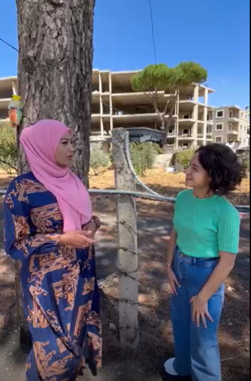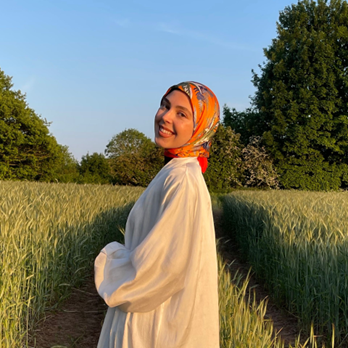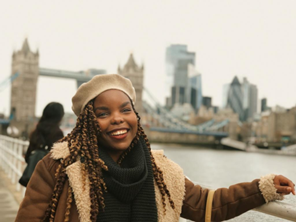This year’s theme for International Day of Peace, on the 21st of September, focused on the call to action for the global community to recognize individual and collective responsibility to foster peace. Fostering peace contributes to the realization of the Sustainable Development Goals (SDGs) and achieving the SDGs will create a culture of peace for all.
Amina Khalid, Head of our Sustainable Communities Programme, visited some of Lebanon’s most historic cities and provinces recently, allowing the Sustainable Communities Network to deepen its understanding of the ongoing conflict in the country. Dialogue was held with local community members to understand the complex and specific struggles of ordinary communities trying to survive and find peace in the most extraordinary ways. Amina said “A generation after the end of Lebanon’s civil war, the country still faces enormous internal and external challenges, which continue to hold it back from nationwide peace. Within Lebanon, whilst peace may not be as widespread as it should be, it is a goal that Lebanese citizens refuse to stop striving for by taking great steps to try to foster peace on a daily basis”.
From this visit, both the Sustainable Communities Programme, and the wider Initiatives of Change UK Network, created a video to commemorate this year’s International Day of Peace. The video amplified the inspiring voices of peacebuilders globally, where individuals were asked one profound, yet important question: “What does peace mean to you, and what is one step you can take to help achieve this?”
This question was posed to one of the founders of Skill Arabia and Lebanese activist, Hiba, who defined Skill Arabia as “an initiative which aims to foster peace through increasing access to training and education for the next generation of leaders in Lebanon.” Amina asked Hiba if she felt that there was peace at home in Lebanon and Hiba immediately responded, “No. Lebanon has been struggling to achieve national peace for as long as I’ve known. In order to progress, I believe that it’s vital for people to realize that there are two layers to peace- inner peace with yourself and outer peace with the world around you. It’s so important to understand that both go hand in hand with each other.” To Hiba, “…the establishment of peace in the everyday lives of those in Lebanon is reliant on how willing people are to flourish and grow with one another. Start by having dialogue with yourself as part of your inner journey, continue the conversation with your family and watch how readily peace can bloom. Peace is inherently community–based.” Additionally, Hiba also felt that the Sustainable Communities’ approach of building peace through education, deeply aligns with her own hopes for peacebuilding across Lebanon. Hiba’s husband, Habib, who supports her peacebuilding efforts answered saying peace means “…making peace with one’s enemies and offering help to those in need where you can”. Both Hiba and Habib were kind enough to introduce Amina to Skill Arabia’s CEO, Amadeus Awad, who also attempted to answer the question, “What does peace mean to you, and what is one step you can take to help achieve this?”. Amadeus said, “That’s a very hard question because if you ask everyone what peace is, they would each give you a different answer.” He added, “To me, peace is when I see the people I know smiling. This means that they have peace at home, peace at work, peace in their relationships, towns, and eventually their country.” Skill Arabia as an initiative is an example of an extraordinary step he has taken to foster his vision of peace. Pictured below is Amina Khalid with Hiba.


Zenib Al-Ahmar from the Sustainable Communities Network in Nottingham.

Tania from the Sustainable Communities Network in London.
Amina’s trip to Lebanon also amplified the voices of young members of the Lebanese diaspora community in the UK, such as Zeinab Al-Ahmar, an active participant in the Sustainable Communities Network. Now based in Nottingham, for Zeinab, peace means “co-existing in harmony and tranquillity, laying down our weapons and cohesively coming together.” Amina adds “Even amongst those who have escaped physical states of war in their home country, there is a deep yearning for a peaceful homeland.”
In the United Kingdom, Tania, who has recently started to engage with the Sustainable Communities programme, also gave her thoughts about what peace means to her. She said, “Peace transcends the absence of conflict and war; it encompasses a profound harmony that resonates on many levels. Peace, to me, is a state of equilibrium where individuals, communities, and nations coexist in mutual respect, understanding, and cooperation. It is a world where differences are celebrated, not feared, and where empathy and compassion guide our interactions. The steps I am taking towards my concept of peace are; to practice active listening and community engagement”.
Reflecting on this year’s theme for International Day of Peace, Amina says “In a world filled with so much pain, conflict, and war, it is easy to feel powerless. It is of the utmost importance that people realise there are actions they can take to make the world a more just, equal, and peaceful place. Whilst the fight for peace is a difficult one, it is one that both the Sustainable Communities Programme and the wider Initiatives of Change Network will never abandon”.
For more details on the work of the Sustainable Communities Programme please click here.
International Day of Peace is a United Nations sanctioned holiday, observed around the world every year on the 21st of September. To find out more about International Day of Peace and the 2023 theme, you can visit their website HERE.